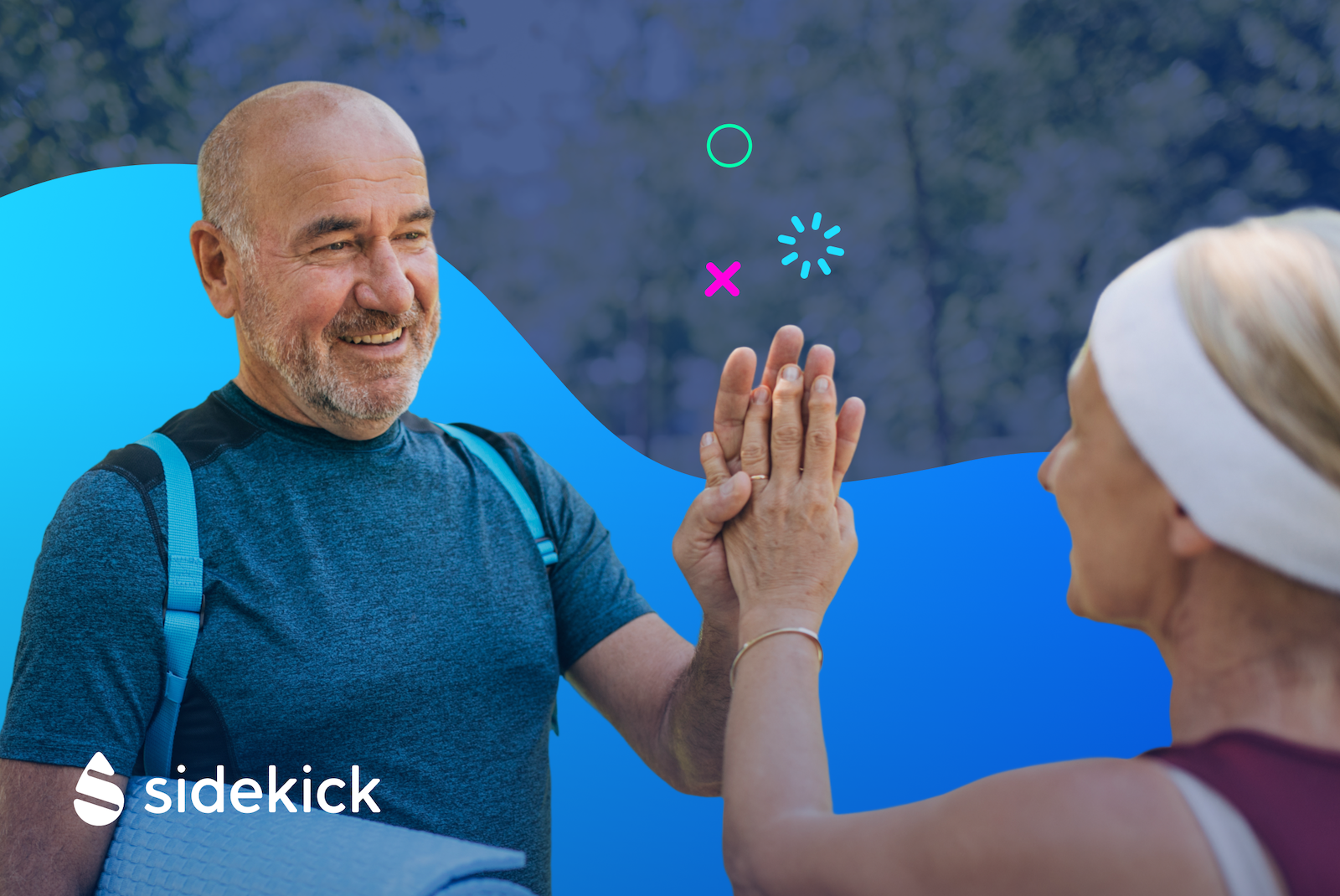.jpg)
Sidekick’s Feasibility Study Shows Encouraging Results for Breast Cancer Patients
The results of a new pilot study will be presented today at the 2022 European Society for Medical Oncology (ESMO) Breast Cancer conference, and show promise in the use of Sidekick Health’s digital therapeutic (DTx) solution in the management of breast cancer.
Living With Breast Cancer
Breast cancer is the world’s most prevalent cancer, with an estimated 2.3 million women newly diagnosed in 2020 and, globally, there are more disability-adjusted life years (DALYs) lost to women who have breast cancer than any other type of cancer. The disease burden of cancer is influenced by not just direct disease progression, but also surrounding lifestyle factors that affect a patient’s overall physical and emotional wellbeing. These, in turn, impact on a patient’s quality of life, including ability to return to work.
Treatment for breast cancer usually involves a combination of surgical resection, radiotherapy, or chemotherapy. The physiological side effects of these treatments are well-documented and can be mitigated to some extent with supportive therapy, such as antiemetics or appetite stimulants. However, the more nuanced symptoms frequently experienced by breast cancer patients, such as pain, fatigue and emotional distress, are often not as well supported: a study in the US found that up to half of patients with cancer in community cancer centers did not report receiving adequate help or advice for these symptoms.
Consequently, further support for the pain, fatigue and psychological challenges breast cancer patients experience is vital in ensuring all their health needs are met, as well as increasing their quality of life, throughout the duration of their treatment and beyond.
Sidekick’s DTx Solution
Digital interventions can effectively improve pain, fatigue, stress and overall health-related quality of life. Therefore, Sidekick has developed a DTx solution to help with the structured implementation of lifestyle improvements to achieve lasting improvements for breast cancer patients. Through a combination of gamification and behavioral psychology, the solution motivates participants to improve their quality of life through the creation of healthier lifestyle habits.
Study Design
The study was a four-week, single-arm feasibility trial. Eighteen female participants with breast cancer were recruited from The Light (Ljósið), a cancer rehabilitation clinic in Iceland. Participants had a mean age of 50 years and were overweight or obese with a mean BMI of 30, and all had ongoing cancer treatment involving either radiotherapy, chemotherapy, or both.
Participants were asked to register in the app, and had a number of interventional tools available to use including:
- Food logging
- Activity tracking and step count
- Surveys
- Receiving educational content on mindfulness, sleep, stress management, and nutrition
Outcome Measurements
Baseline and follow-up measurements were taken for the following parameters:
- Cardiovascular fitness
- Body composition (InBody 770 body composition analyzer)
- Cancer-related quality of life (EORTC QLQ-C30 questionnaire)
App usage information, such as engagement, retention, and step goal attainment, was also collected through the app over the course of the trial.
Results
Overall, all but one participant was engaged in the app every week, with 67% of the participants being ‘highly’ engaged which means that they interacted with the app at least five days a week. This was reflected in the participants’ use of the step counter, where all but two participants were using the tool and 71% were reaching their step goals by week four.
Health-related quality of life assessment showed that global health status, functioning and symptom burden remained stable from baseline to follow-up. The largest improvement seen in functional measurements were for social and role functioning (non-significant):

The largest improvement in symptoms was observed in pain scores, which decreased for over 50% of participants (non-significant):

The program had high acceptability:
- 83% of participants said they were likely to recommend it
- 83% found the program helpful for remembering to take their medication
- 72% said the program helped them deal with the disease
Conclusion
The high retention, engagement and acceptability suggest that a DTx intervention is feasible for breast cancer patients. Our findings demonstrate that these patients are motivated and willing to seek support, and our DTx solution may be able to help improve pain and social functioning and maintain a better quality of life. While these results hold great promise, more work is ongoing to ensure long lasting, significant clinical improvements.
Following the positive results from this pilot study, a longer, full-scale randomised controlled trial (RCT) is currently being planned to evaluate the efficacy of the intervention. We anticipate the outcomes will help to shape the future of integrated physical and psychological care for breast cancer patients, improving quality of life for many.
Let's keep you informed about developments in the digital therapeutics space. Sign-up for The Sidebar now. (Don’t worry, you can unsubscribe at any time.)



.svg)

.jpg)



%201%20(1).jpg)



.jpg)

.jpg)
.jpg)

.jpg)
.jpg)
.jpg)

.jpg)


.jpg)
.jpg)



.jpg)


.jpg)

.jpg)
.jpg)

.jpg)
.jpg)
.jpg)
%201%20(1).jpg)


.jpg)
%201%20(1)%201%20(1).jpg)
.jpg)
.jpg)
.jpg)

.jpg)
%201%20(1).jpg)
.jpg)




.jpg)
.jpg)



.jpg)



.jpg)
.jpg)



.jpg)
.jpg)

.jpg)
.jpg)
.jpg)
.jpg)
.jpg)


.jpg)

.jpg)
.jpg)


.jpg)



.jpg)
.jpg)

.jpg)

.jpg)
%201%20(1).jpg)


.jpg)
.jpg)


.jpg)
.jpg)

.jpg)


.jpg)